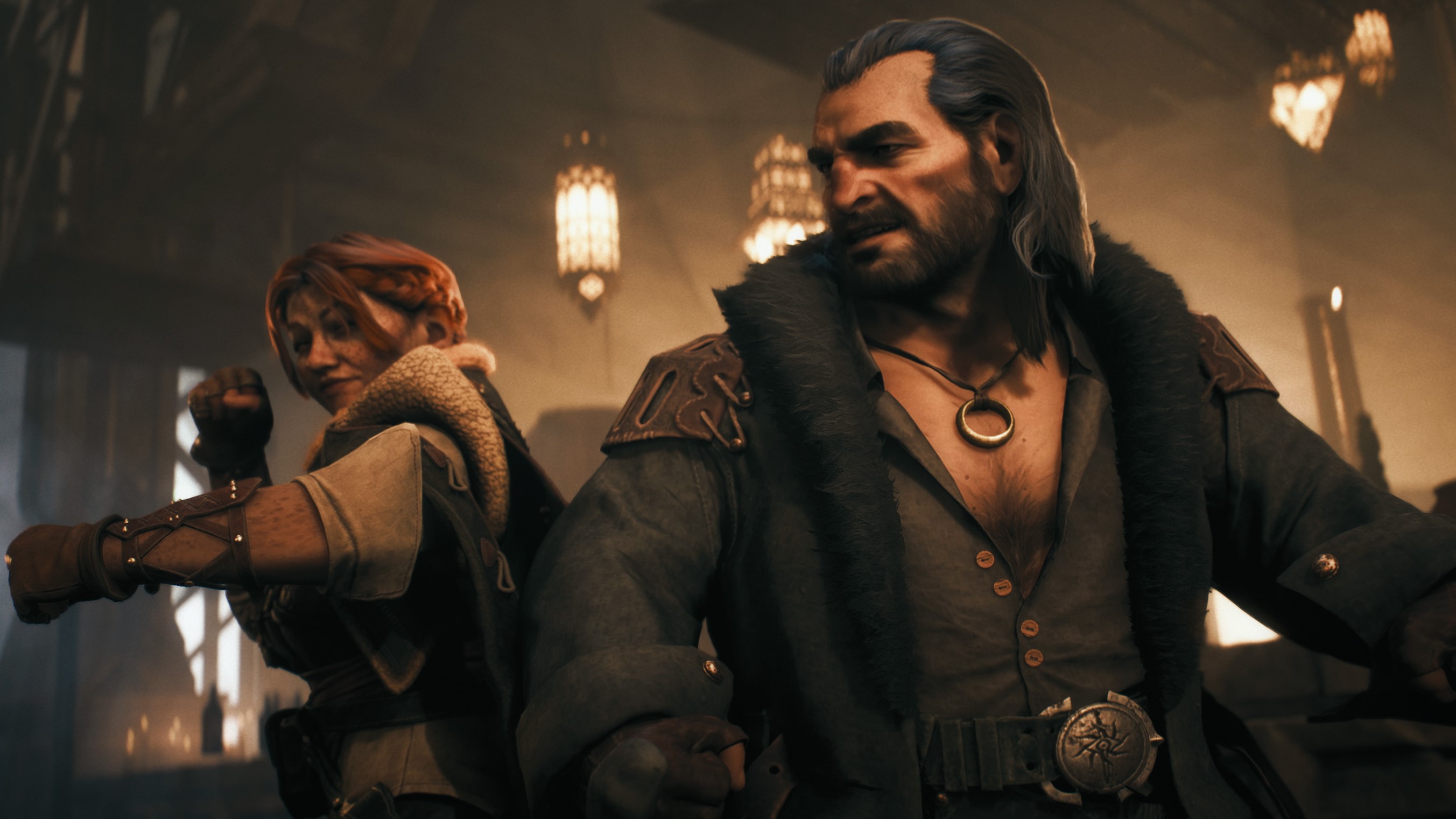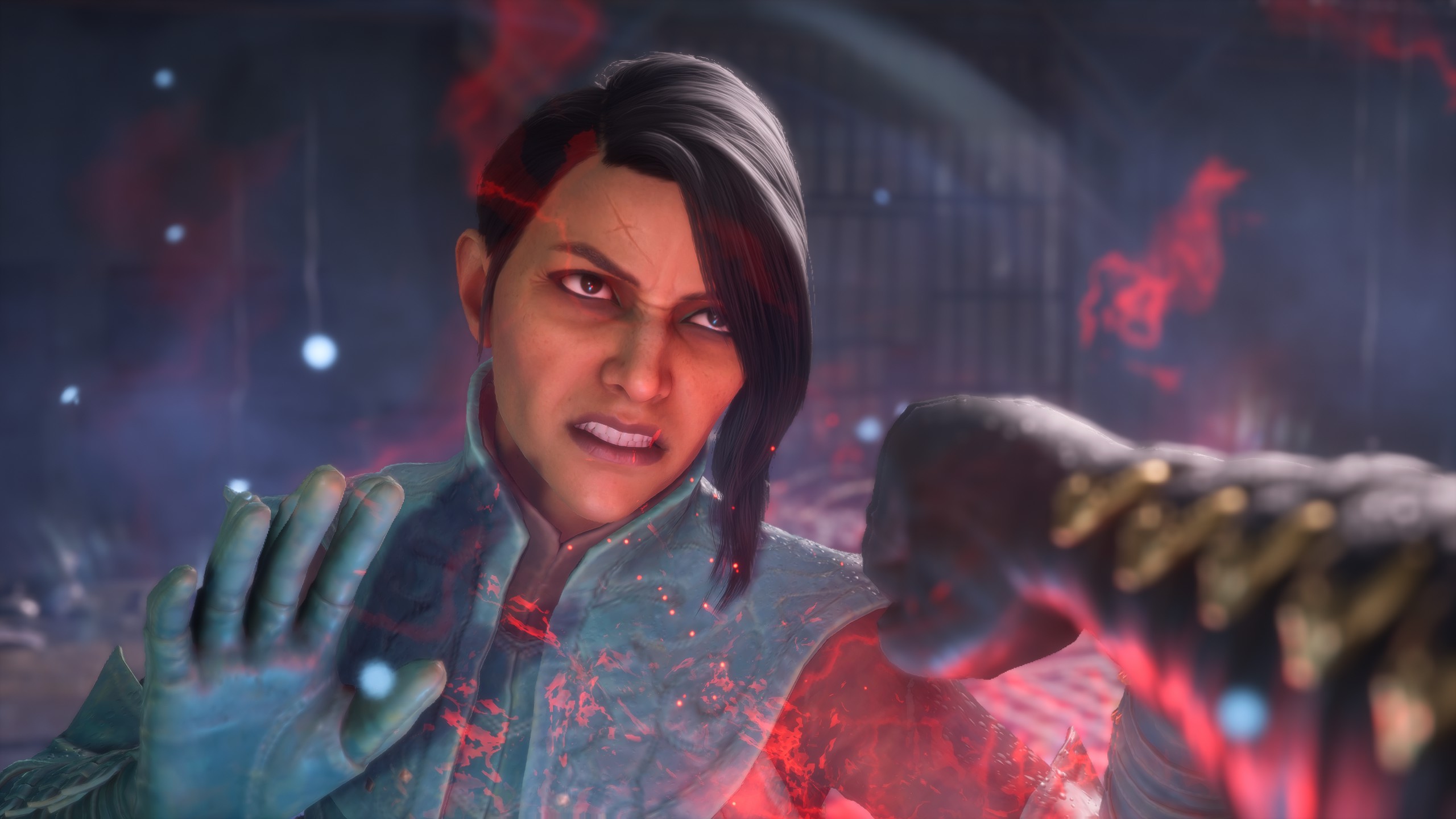We can't keep making videogame stories for players who aren't paying attention to them
Let me get lost, I promise it's okay.

Keep up to date with the most important stories and the best deals, as picked by the PC Gamer team.
You are now subscribed
Your newsletter sign-up was successful
Want to add more newsletters?

Every Friday
GamesRadar+
Your weekly update on everything you could ever want to know about the games you already love, games we know you're going to love in the near future, and tales from the communities that surround them.

Every Thursday
GTA 6 O'clock
Our special GTA 6 newsletter, with breaking news, insider info, and rumor analysis from the award-winning GTA 6 O'clock experts.

Every Friday
Knowledge
From the creators of Edge: A weekly videogame industry newsletter with analysis from expert writers, guidance from professionals, and insight into what's on the horizon.

Every Thursday
The Setup
Hardware nerds unite, sign up to our free tech newsletter for a weekly digest of the hottest new tech, the latest gadgets on the test bench, and much more.

Every Wednesday
Switch 2 Spotlight
Sign up to our new Switch 2 newsletter, where we bring you the latest talking points on Nintendo's new console each week, bring you up to date on the news, and recommend what games to play.

Every Saturday
The Watchlist
Subscribe for a weekly digest of the movie and TV news that matters, direct to your inbox. From first-look trailers, interviews, reviews and explainers, we've got you covered.

Once a month
SFX
Get sneak previews, exclusive competitions and details of special events each month!

Last week I was: Talking about entropy in MMORPGs, and being a busy bee in World of Warcraft.
I've noticed a trend—particularly in some recent RPGs—of, well, let's call it 'Netflixiness'.
Dialogue designed to leave absolutely nothing to interpretation, to exposit information in the most direct way possible, devoid of any real character or context. There's an assumption that any moment the audience spends confused, curious, or out-of-the-loop is a narrative disaster.
I hate to keep knocking Dragon Age: The Veilguard about, especially since I still had a decent time with it all told, but the thing that made me break off from it after 60 hours really was its story. It's a tale that does get (slightly) better, but it gave me a terrible first impression I never quite shook.
Given the game's troubled development history, and the fact that some of its writers have produced perfectly fine work before (Mordin Solus, for cryin' out loud), I'm led to believe this pattern comes from the top. Well, I have a hunch.
When Varric says "That ritual is going to tear down the Veil—the only thing separating us from the Fade and an endless number of demons" to Rook, his mission partner, who should know all of this already, I can't help but think of one thing. Second screen viewing.
In this excellent article in the International Journal of Communication, Daphne Rena Idiz recounts a time where an interviewee told her that Netflix had insisted: "What you need to know about your audience here is that they will watch the show, perhaps on their mobile phone, or on a second or third screen while doing something else and talking to their friends, so you need to both show and tell, you need to say much more than you would normally say."
Now Harvey, one might say, that makes absolutely no sense. Videogames—with some exceptions in genre, like idlers—aren't played as second screen activities. To which I would reply: You're exactly right, but since when has that stopped executives from chasing trends against common sense before? These are the people who thought Veilguard still should've been a live service game. After everything.
Keep up to date with the most important stories and the best deals, as picked by the PC Gamer team.
This is conjecture, but I don't think it's out of pocket to assume some of these companies are chasing the narrative successes of streaming services. Or that in doing so, their big bosses might adopt all sorts of "wisdom" designed for making media meant to be consumed, not enjoyed.
After all, in these second-screen shows, nothing is left up to chance. If your audience gets lost, it's bad. If your audience gets confused, it's bad. Bad stories are confusing. Good stories are understood. I know these things because I've looked at other good, popular stories.
The Veilguard follows in this trend, because it's a game that's terrified of audiences getting lost at any point. As fellow PCG writer Lauren Morton put it, it's "desperate to chew my food for me". And whether the problem lies with big movers and shakers at EA, or their selected testing audiences, it doesn't matter. Because we're shooting ourselves in the foot, here.
Everybody loses
Videogames are enjoyed in a ton of different ways—some are even designed for you to tap out of the story entirely, or to only engage with it as an option. And this is fine. But you cannot, as EA did, reach for other audiences on the assumption that the nerds will like whatever you give 'em.

Some players will skip every cutscene, glaze over every dialogue entry, and hammer their skip button 'till the face button's worn out. And I have no qualm with these people—they simply value a different set of things from me. We can coexist. It's the design assumption that we must be met in the middle that's messing us up.
For this player, a story that's impossible to ignore will barely register for them. If anything, it might backfire—making them feel coddled or pushed into situations they don't care about. And for me, dialogue that's written for people who aren't paying attention makes my brain want to crawl out of my skull and autonomously go do anything else.
Here's the thing: Good writing advice says to 'show, not tell' not because everything must be shown as soon as it comes up, lest the audience be lost, but because it's inherently more interesting to give us the pieces we need to draw conclusions. Crucially, you don't always have to actually give people information.
Confusion isn't a fail-state, not having the answers immediately isn't a disaster. It's okay to let a question mark float above your player's head, or to trust they'll get the gist from context clues. We can tell the ritual Varric and Rook are trying to stop is dangerous because they're trying to stop it. I promise.
Confusion isn't a fail-state, not having the answers immediately isn't a disaster."
I feel like there's this phantom assumed viewer who, without a full set of narrative cards in their hand, will throw their controller and immediately do something else. And that makes me sad, because it assumes your players aren't curious. That they don't want to have questions, or aren't interested in seeing where something leads.
Some aren't, sure, but if you design videogame stories for them, you rob from your most invested players the simple pleasures. Analysing the story, looking deeper into scenes, discussing it with each other online. And as someone who watched Final Fantasy 14 reach a fever-pitch of over-explaining during Dawntrail, that stings, let me tell you.
I'm sick of seeing games with an air of corporate weight sitting on top of them. I'm tired of watching a scene and going "yep, that probably tested well with audiences". I'm exhausted by this pervasive idea that writers are to be resented, or that I have the memory of a goldfish (I do, but that's besides the point).
I want to get a little lost. I want to have to think about what a scene I just watched meant. I want to see where your story goes, rather than be told where it's headed. We simply cannot keep making videogames for people who aren't paying attention, because it won't change anything for them—and it's making the rest of us bloody miserable.

1. Best overall: AMD Radeon RX 9070
2. Best value: AMD Radeon RX 9060 XT 16 GB
3. Best budget: Intel Arc B570
4. Best mid-range: Nvidia GeForce RTX 5070 Ti
5. Best high-end: Nvidia GeForce RTX 5090

Harvey's history with games started when he first begged his parents for a World of Warcraft subscription aged 12, though he's since been cursed with Final Fantasy 14-brain and a huge crush on G'raha Tia. He made his start as a freelancer, writing for websites like Techradar, The Escapist, Dicebreaker, The Gamer, Into the Spine—and of course, PC Gamer. He'll sink his teeth into anything that looks interesting, though he has a soft spot for RPGs, soulslikes, roguelikes, deckbuilders, MMOs, and weird indie titles. He also plays a shelf load of TTRPGs in his offline time. Don't ask him what his favourite system is, he has too many.
You must confirm your public display name before commenting
Please logout and then login again, you will then be prompted to enter your display name.

